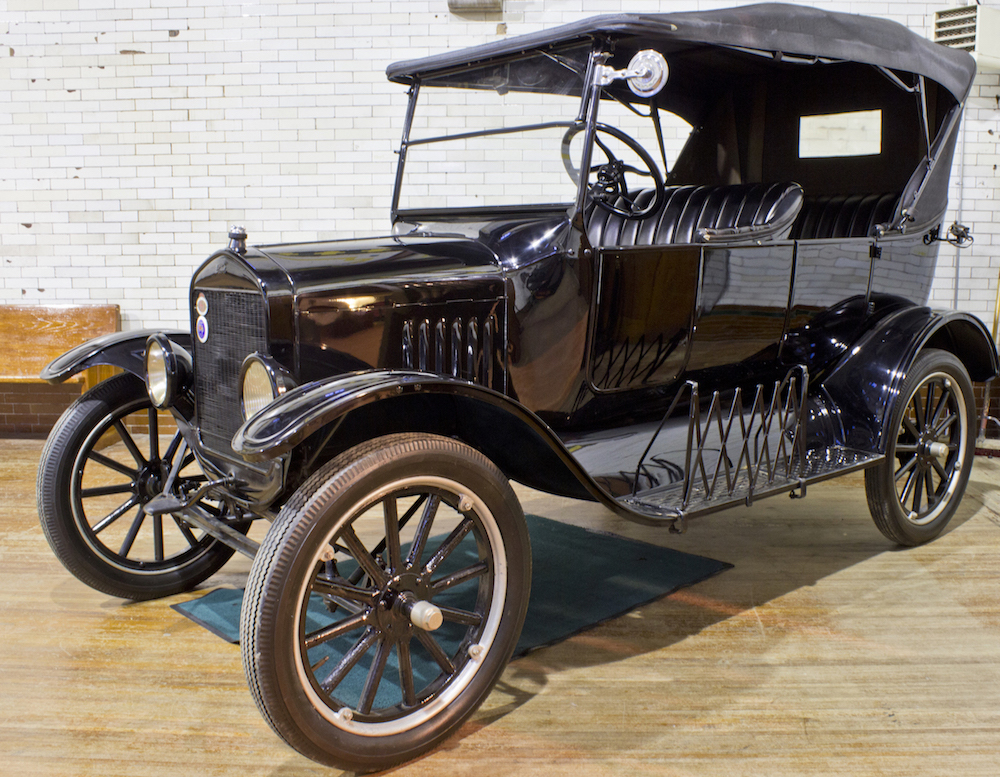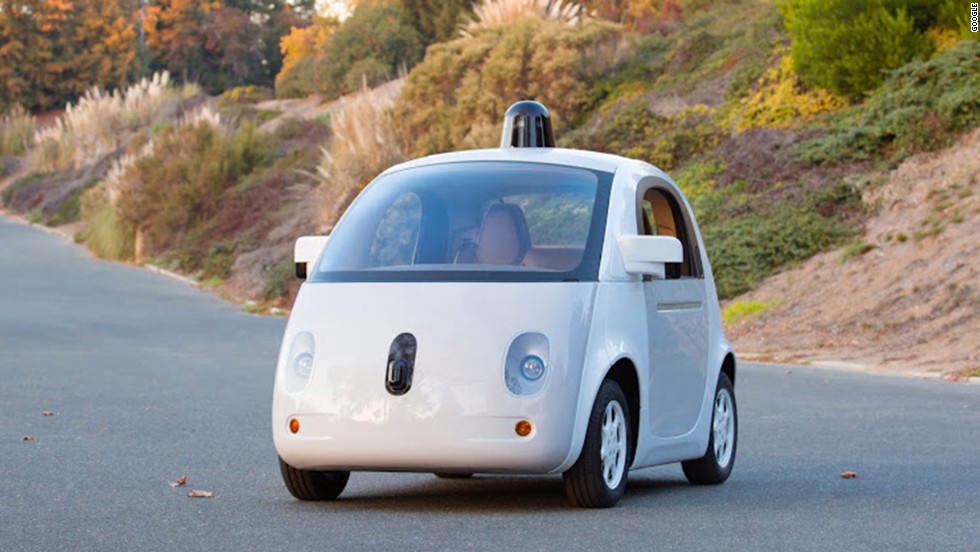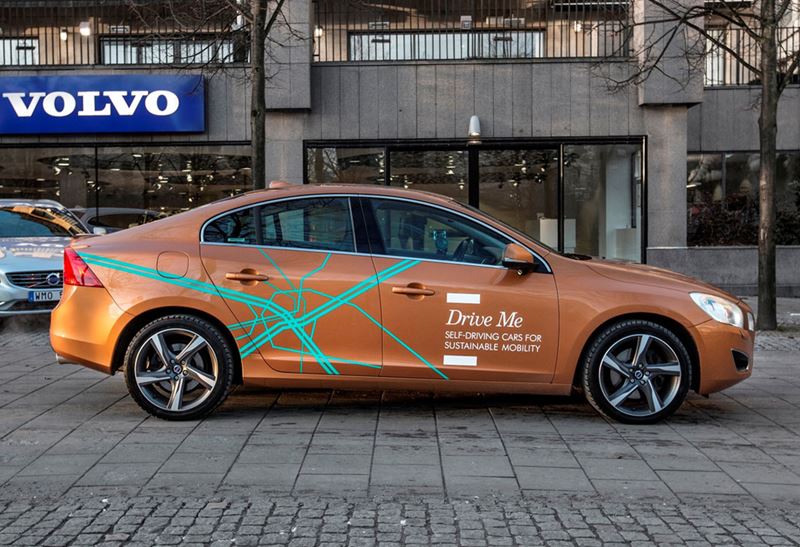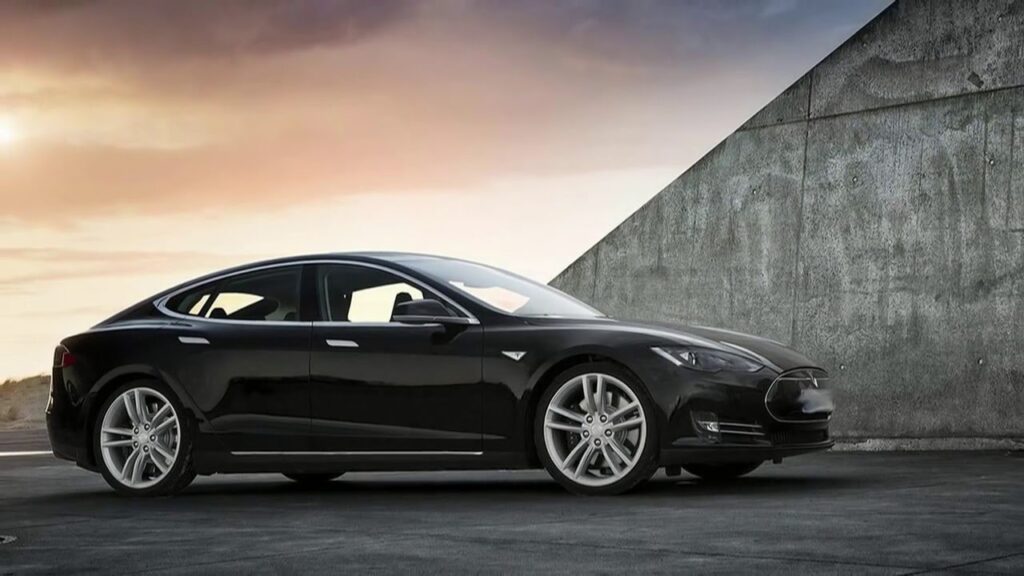Will it be a tech firm or a traditional automaker that makes the first mass-market autonomous vehicle?
Henry Ford didn’t build the first car, nor the fastest, nor the best-looking motor on the road in his day.
He didn’t care for fuss and fancy, famously deciding that customers could have “any colour you want as long as it’s black”.
But when Ford’s Model T rolled off his new production line in 1908, it was relatively cheap, easy to drive and reliable.

Through the next 20 years of production, the Model T became the car of choice for middle-income families in America and beyond – and it remains one of the best-selling cars of all-time.
Skip forward a century and a new automotive era is dawning: the driverless car.
So who will do what Henry Ford did more than a hundred years ago and come up with a mass-market driverless car that everyone will want?
The tech giants
Internet search giant Google has been the early pace-setter in the development of driverless cars … or “self-driving vehicles” as Google calls them. The difference isn’t just language. It’s about who Google sees as being in charge of the journey: the car.
Google has clocked up 1.5 million driverless road miles since it first modified a Toyota Prius to self-drive in 2009. Since then, Google has adapted Lexus SUVs before revealing its own prototype vehicle without peddles or a steering wheel.

But there have been set-backs. On Valentine’s Day this year, one of Google’s self-driving Lexus SUVs collided with a bus in California. No one was injured, but the vehicle had to be towed away.
Questions have also been raised about Google’s project by the departure this month (August) of Chris Urmson, the engineer who has led its development for the last seven years.
Google’s counterpart in China, Baidu, has also been developing driverless technology.
The company announced earlier this year that it was looking for a partnership with a Chinese automaker to produce a driverless car for the mass market within five years.
To date, Baidu’s road tests in Beijing and Wuhu have used a modified BMW 3-Series GT. But the company has signalled its intention to compete internationally by opening a research centre in the United States … not far from Google’s Mountain View headquarters in Silicon Valley.
But perhaps the biggest question is whether or not Apple will enter the driverless car market. Rumours abound that Apple is developing an “iCar” in secret under the name “Project Titan”.
The rumours range from reports that the company has registered website addresses like “apple.auto” and “apple.car” through to reports of the sounds of engine noises late at night at Apple HQ in California. The company itself has been remarkably coy about the rumours and its supposed interest in driverless cars. CEO Tim Cook has merely hinted that Apple is a “curious” company investigating all manner of new technologies.
Microsoft has a stake in the race through its collaborations with Volvo and Toyota, while chip manufacturer Intel has been partnering with BMW on advanced technology projects. IBM is partnering with a smaller US manufacturer to develop a driverless minibus.
The established marques
Having been left standing by Google at the start of the race, many of the world’s best known auto-marques are now striving to catch up.
Toyota and Nissan have said they plan to have driverless cars ready for the year 2020. Daimler, the owner of Mercedes-Benz, has pledged to have a driverless truck ready in the same year. Volvo has set a target for the launch of a fully-driverless vehicle by 2021 and Volkswagen believes they will be “commonplace by 2025”.

Ford, BMW and Audi have also invested heavily in driverless tech, with Audi’s autonomous A7 clocking up 550 self-driven miles last year. But all three appear to be more cautious about committing to a hard deadline about when they will take a fully-autonomous car to market. In an interview earlier this year, Ford CEO Mark Fields said:
“What we have said is, we may not be the first, but when we do, it will be true to our brand, which means accessibility. We want to make sure it’s available to everyone, and not just folks who can afford luxury cars.”
Indeed, not all automakers have been rushing to catch up. Some have focussed their investment in the development of driver assist technologies that are closer to being market-ready: notably Hyundai in Korea.
Wolfgang Epple, Head of Research and Development at Jaguar-Land Rover, went as far as to say that he did not see “customers as cargo”.
General Motors has followed a two-pronged strategy. On the one hand, it has invested heavily in its own driverless research and development programmes. On the other, it has formed partnerships or bought a stake in other players in the field, including taxi firm Lyft.
The disruptors
This brings us to the final category of major players: the market disruptors.
Digital taxi businesses Uber and Lyft both believe autonomous vehicle technology may be the future of “pay-to-play” road transport.
General Motors and Lyft announced in the same month that they would trial a fleet of driverless Chevy Bolt taxis.
Finally, there’s Elon Musk. The billionaire PayPal founder has set his sights on disrupting a number of different transport markets: from space and rail travel to motoring.

His Tesla marque was first known as an electric vehicle. Now it’s just as famous for the “auto pilot” featured in its Model S unveiled in October last year. Announcing the feature, Musk struck a balanced tone, part cautious, part ambitious:
“It’s just important to exercise great caution at this early stage. In the long term, people will not need hands on the wheel—and eventually there won’t be wheels and pedals.”
It remains to be seen whether a fatal accident involving a Tesla in auto pilot mode in May this year will damage public confidence in driverless cars and slow development.
What do you think?
What does seem to be clear is that driver assist technologies are going to become increasingly standard features of new vehicles over the next five years.
What’s also clear is that regulators and governments around the world are racing to catch-up and ensure road laws match the new driver assist and driverless technologies.
So what do you think?
Will it be a single company or collaboration of tech and automaker who emulates Henry Ford and wins the race to build a mass-market driverless car?
